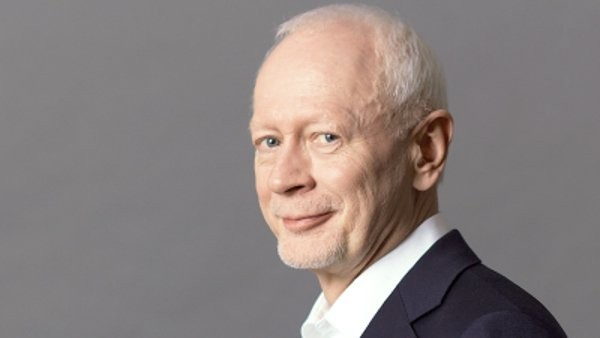31 May, 2016
ETNO ThinkDigital Blog: A new framework for the future connectivity of European users
MEP Boni: “Today, we have to respond to the new challenges. We need to re-balance the models of infrastructure-based and service-based competition" #ThinkDigital
 Within the terms of the digital revolution and in light of the need to build a new digital competitive advantage for the European Economy and Development in the interest of all - the key is to ensure access of all users to high-qualified connectivity.
Within the terms of the digital revolution and in light of the need to build a new digital competitive advantage for the European Economy and Development in the interest of all - the key is to ensure access of all users to high-qualified connectivity.
By high-qualified, I mean future 5G and the road map to 5G, as well as the possibility of using the different components of networks at national levels: fibre, wireless, the old copper, satellite, cable - if it is useful and possible.
By high-qualified, I mean future-proof, adjusted to the speed and parameters required for telemedicine and eHealth, the autonomous cars industry development, IoT growth and common utilisation, etc. The regulatory and non-regulatory framework should be aimed at future networks, not today's needs. Non-regulatory solutions are very important in some areas as these are much more flexible and adjustable to the changing technologies.
But what is most important, is to start with very much needed investment.
How can we maintain respect for competition and boost investment?
Competition is only a tool for growth, for healthy markets and finally, as a result – for investment. Investment is a tool that is needed to really make connectivity workable in the new digital terms. But this does not mean that competition should be the objective per se just as it does not mean that investment should be the objective per se. Both tools are needed for the better usage of networks by users, the users of the future.
Does it change the paradigm?
Now, we need to establish the background for infrastructure-based competition - in the context of new models of services such as software-defined networks. In the past we focused more and more on service-based competition, indicating the necessity of accessibility at low prices and - at the European level - the so-called end of roaming. Keeping prices low was very important at that time.
For too long, regulators have focused on strictly controlling the price of access to regulated networks, denying network owners any competitive edge on their investment and forgetting the potential risk of under-investment in new networks.
Today, we have to respond to the new challenges. We need to re-balance the models of infrastructure-based and service-based competition.
A new framework for the future connectivity of European users requires the following:
- An understanding of the key objective and significance of investment in networks - for the users of the future
- Certainty is an important factor for all stakeholders, but most of all for long-term business investment plans
- The network infrastructure must be built as an open system intended to support the greatest possible diversity in: Access, Content, Usage, Architecture. Networks must be built as a series of interoperable components with well-defined public interfaces, which permit maximum third party competition
- Competition rules must guarantee competitiveness in an open context: to strengthen market-drivers
- Clear, but newly-defined ex-ante rules for all players. This means that we need criteria from the first stages of the process
- Clear, well-prepared ex-post rules to check on the results of the aforementioned market-drivers
- A new order for the European network market that is more adjusted to future needs, user expectations and the necessity for European competitiveness as a whole continent rather than competitiveness in each 28 national market
- A realistic view of the possibility for implementation at the commercial level of the 5G objectives
- A new definition of regulatory obligations and goals, much more adjusted to the new, more harmonised framework.
By MEP Michal Boni for ETNO #ThinkDigital, 31 May 2016
***
MEP Michal Boni
Michal Boni has been a Member of the European Parliament since 2014. He is a member of the Delegation to the Euronest Parliamentary Assembly, Vice-Chair of the Delegation to the EU-Moldova Parliamentary Cooperation Committee and a member of the LIBE and DEPA Commitees. He is also a founding member of the Intergroup on the Digital Agenda for Europe.
He is a graduate of the University of Warsaw where he lectured in the Department of Polish Culture for many years. He had been involved in the ‘Solidarity’ underground movement since 1980, becoming a member of the national authorities of ‘Solidarity’ in 1989 and Chairman of the Mazowsze Region Management Board in 1990. From March 1983 to 1989, he was the editor-in-chief of the underground weekly newspaper "Wola".
He was the Minister of Labour and Social Policy in 1991 and from 1992 to 1993, he held the position of Secretary of State at the same ministry where he was responsible for labour market policy among others. From 1998 to 2001, he was the Chief Advisor to the Minister of Labour and Social Policy. He was a key expert cooperating in the shaping of the National Development Plan and the National Action Plan for 2007-2013. He was the Head of Strategic Advisors to Prime Minister Donald Tusk from 2008 and the Minister of Administration and Digitisation of Poland from 2011 till 2013.
Michal Boni has hosted the Congress of Freedom on the Internet, organised the consultation on digital privacy and data protection and launched the Digital Poland Governmental Operational Programme 2014-2020.


